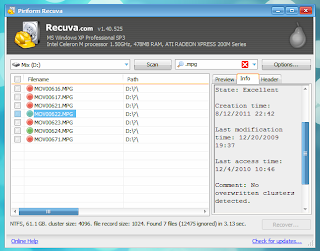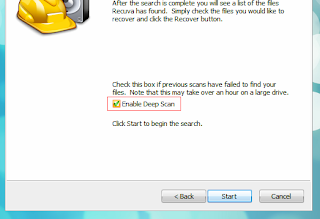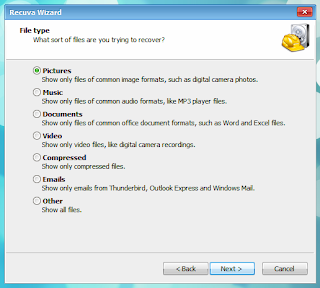Ext4 is the latest version of the "Ext" journaling file system of GNU/Linux. I think it was Ext2, few years ago which was the main file system. It was really a big pain in the as* because at that time you had to like, check the file system after a certain number of mounts or system boots. It also used to take a long time to check for errors where MS Windows XP was also around at that time with the impressive NTFS file system too.
Anyhow, it's quite amazing what can happen after few years and thanks to a lot of developments and dedications of a lot of Kernel and other GNU/Linux core developers, now we have some highly durable, quite efficient, not just one but a lot of file systems in GNU/Linux.
Apart from all that, still when it comes to loading and handling a folder filled with thousands of files (both small and bigger ones), in my experience, MS Windows handles these folders way faster than GNU/Linux does. So there's still a long way to go and feels like has a lot of room for features and improvements.
Also, Ext won't be having a "Ext5" as far as I know and as a result GNU/Linux distributions such as Fedora has already begun the migration to the newer (and better) GNU file system called Btrfs with their upcoming version 16.
But since we aren't gonna be seeing this switch from Ext to Btrfs in a massive scale in the recent future (or maybe not), would you like to know how to read/mount Ext2/Ext3 and Ext4 partitions in MS Windows?. If so, there's a simple yet powerful utility called Ext2Fsd (Ext file system driver for Windows) that lets you do exactly that.
Main features...
*. Ext2/Ext3 FS read and write support.
*. Read only for Ext4 (although you can force it to write, but I won't recommend it and even if you use the old Ext3 FS, try to use it in read-only mode, just like as I do with NTFS in GNU/Linux).
*. Mount drives and display them in My Computer.
*. Change mount point or drive letters (you can make Ext2Fsd to temporarily mount your drives which will be lost after a reboot or mount them permanently too).
*. Even if you have a Ext4 file system mounted, it's still be displayed as "Ext3" in Ext2Fsd which is normal.
*. Perform fsck and checksum while mounted on MS Windows... are among its main features to mention.
You can get it from this Ex2Fsd Project home page if you want to give it a try. After installing you can run it by main two methods.
1. Run it in the system tray area OR
2. Run as a services (which makes it invincible).
As in the above screenshot, you can access those options by click on: "File" from its main menu bar and choosing the appropriate option. If however, after mounting the Ext3/4 file system, you got a message from MS Windows saying that the disk is not-formated (yikes!), then simply reboot your PC and remount, which should solve your problems. Good luck.
Anyhow, it's quite amazing what can happen after few years and thanks to a lot of developments and dedications of a lot of Kernel and other GNU/Linux core developers, now we have some highly durable, quite efficient, not just one but a lot of file systems in GNU/Linux.
Apart from all that, still when it comes to loading and handling a folder filled with thousands of files (both small and bigger ones), in my experience, MS Windows handles these folders way faster than GNU/Linux does. So there's still a long way to go and feels like has a lot of room for features and improvements.
Also, Ext won't be having a "Ext5" as far as I know and as a result GNU/Linux distributions such as Fedora has already begun the migration to the newer (and better) GNU file system called Btrfs with their upcoming version 16.
But since we aren't gonna be seeing this switch from Ext to Btrfs in a massive scale in the recent future (or maybe not), would you like to know how to read/mount Ext2/Ext3 and Ext4 partitions in MS Windows?. If so, there's a simple yet powerful utility called Ext2Fsd (Ext file system driver for Windows) that lets you do exactly that.
Main features...
*. Ext2/Ext3 FS read and write support.
*. Read only for Ext4 (although you can force it to write, but I won't recommend it and even if you use the old Ext3 FS, try to use it in read-only mode, just like as I do with NTFS in GNU/Linux).
*. Mount drives and display them in My Computer.
*. Change mount point or drive letters (you can make Ext2Fsd to temporarily mount your drives which will be lost after a reboot or mount them permanently too).
*. Even if you have a Ext4 file system mounted, it's still be displayed as "Ext3" in Ext2Fsd which is normal.
*. Perform fsck and checksum while mounted on MS Windows... are among its main features to mention.
You can get it from this Ex2Fsd Project home page if you want to give it a try. After installing you can run it by main two methods.
1. Run it in the system tray area OR
2. Run as a services (which makes it invincible).
As in the above screenshot, you can access those options by click on: "File" from its main menu bar and choosing the appropriate option. If however, after mounting the Ext3/4 file system, you got a message from MS Windows saying that the disk is not-formated (yikes!), then simply reboot your PC and remount, which should solve your problems. Good luck.





























